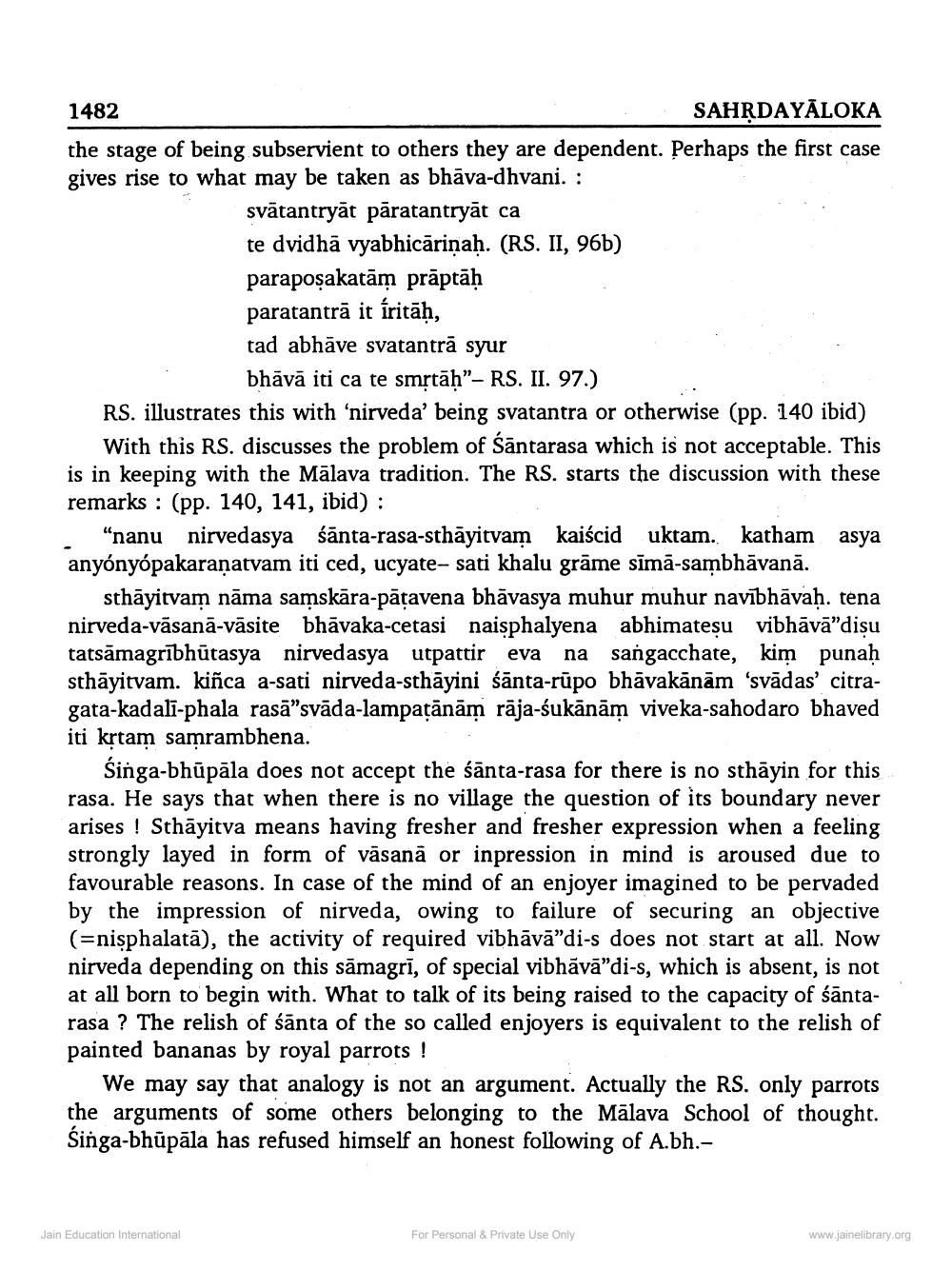________________
1482
SAHRDAYĀLOKA the stage of being subservient to others they are dependent. Perhaps the first case gives rise to what may be taken as bhāva-dhvani. :
svātantryāt pāratantryāt ca te dvidhā vyabhicāriņaḥ. (RS. II, 96b) parapoșakatām prāptāḥ paratantrā it íritāḥ, tad abhāve svatantrā syur
bhāvā iti ca te smrtāh"- RS. II. 97.) RS. illustrates this with 'nirveda' being svatantra or otherwise (pp. 140 ibid)
With this RS. discusses the problem of Santarasa which is not acceptable. This is in keeping with the Mālava tradition. The RS. starts the discussion with these remarks : (pp. 140, 141, ibid):
"nanu nirvedasya śānta-rasa-sthāyitvam kaiścid uktam. katham asya anyónyópakaranatyam iti ced, ucyate- sati khalu grāme sīmā-sambhāvanā.
sthāyitvam nāma samskāra-pātavena bhāvasya muhur muhur navibhāvah. tena nirveda-vāsanā-vāsite bhāvaka-cetasi naisphalyena abhimateşu vibhāvā"disu tatsāmagrābhūtasya nirvedasya utpattireva na sangacchate, kim punah sthāyitvam. kiñca a-sati nirveda-sthāyini śānta-rūpo bhāvakānām 'svādas citragata-kadalī-phala rasā"svāda-lampațānām rāja-śukānām viveka-sahodaro bhaved iti krtam samrambhena.
Śinga-bhūpāla does not accept the śānta-rasa for there is no sthāyin for this rasa. He says that when there is no village the question of its boundary never arises ! Sthāyitva means having fresher and fresher expression when a feeling strongly layed in form of vāsanā or inpression in mind is aroused due to favourable reasons. In case of the mind of an enjoyer imagined to be pervaded by the impression of nirveda, owing to failure of securing an objective (=nisphalatā), the activity of required vibhāvā”di-s does not start at all. Now nirveda depending on this sāmagrī, of special vibhāvā"di-s, which is absent, is not at all born to begin with. What to talk of its being raised to the capacity of śāntarasa ? The relish of śānta of the so called enjoyers is equivalent to the relish of painted bananas by royal parrots !
We may say that analogy is not an argument. Actually the RS. only parrots the arguments of some others belonging to the Mālava School of thought. Śinga-bhūpāla has refused himself an honest following of A.bh.
Jain Education International
For Personal & Private Use Only
www.jainelibrary.org




